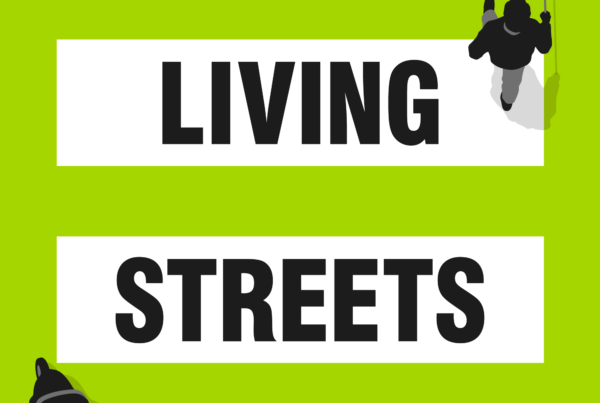23rd – 29th September is National Inclusion Week, an event dedicated to celebrating inclusion and taking action to create inclusive workplaces.
In honour of the week, Mindful Employer Coordinator, Leigh Staunton, has been chatting to Wendy Tangen, Clinical Inclusion Lead at Leeds and York Partnership Foundation Trust and Workforce Race Equality Standard (WRES) Expert.
Leigh and Wendy chatted about what Wendy’s role entails, the Synergi Leeds Network and Skills Library and Wendy’s tips for network members on evaluating racial equality in their workplace.
Hi Wendy, can you tell us a bit about yourself and your role as Clinical Inclusion Lead at Leeds and York Partnership NHS Foundation Trust?
 I am a mental health nurse by profession with over 30 years’ experience, employed in the National Health Service (NHS). I have had many clinical and leadership roles and am quite proud of my career within mental health care. I have the privilege to hold a current position as a Clinical Inclusion Lead, a role I have had for the past 5 years. This new role in my organisation was created to support care services to focus on improving access, experiences and outcomes for people using mental health services, taking into consideration their differences, intersectionality, and social circumstances.
I am a mental health nurse by profession with over 30 years’ experience, employed in the National Health Service (NHS). I have had many clinical and leadership roles and am quite proud of my career within mental health care. I have the privilege to hold a current position as a Clinical Inclusion Lead, a role I have had for the past 5 years. This new role in my organisation was created to support care services to focus on improving access, experiences and outcomes for people using mental health services, taking into consideration their differences, intersectionality, and social circumstances.
As a woman whose identity is from a Caribbean Indian ethnic background, I am able to bring my authentic self to my work, to influence, advocate and promote inclusivity for people with lived experience and communities who may not feel they have a voice. My role allows me to work with health partners across the systems to offer a clinical lens to help shape new ways of working, to benefit all.
How did you come to be involved in the Synergi Leeds Network and can you give our Leeds Mindful Employer Network members an insight into the work of Synergi Leeds?
I became a member of the Synergi Leeds network in 2019. I was aware of the work that led to the formation of the Synergi partnership prior to me joining the network. A joint review was carried out in 2017 by colleagues at Leeds and York Partnership mental health Trust, Leeds City Council and Third Sector organisations, looking at the mental health detention rates of people from Black, Asian, and mixed ethnicities. The result revealed an over-representation of detentions across these ethnic groups and although this result was not unique to the city of Leeds, a commitment was made to address and understand these disparities and improve the outcomes for our minority ethnic communities. My clinical role coupled with my passion for improving racial equity and inclusion placed me in a good position to support the work of Synergi Leeds.
The Synergi Leeds Network focuses on raising the profile of Racial Equity and improving Mental Health Inequalities within Ethnic Minority Communities through prevention and creative methods. Network members come together bi-monthly to share their insight and expertise with each other to influence positive change. Over the past few years, the network has hosted a number of Creative Spaces events to amplify the voices of lived experience partners to highlight their experiences of structural racism and discrimination.
Coproduced with lived experience partners, Creative Spaces events bring like-minded people together to innovate, inspire, and learn from each other using various art forms such as spoken words/poetry, creative writing, and dance/movement. To give an example of the work, at one of our Creative Spaces events I supported our lived experience partners to produce a video sharing openly about their experience of being on a mental health detention. The video content was collectively agreed on by those who participated in the video and included views of lived experience partners from minority backgrounds. Filming and editing of the message was done by a lived experience partner. The video was shown as part of the Creative Spaces event followed by a question and answer segment.
Another strand to the Synergi Leeds’ work is the all-age Grants Programme. The grants programme was codesigned by Synergi Leeds and is funded recurrently by Leeds Community Foundation (LCF). Consisting of grassroots organisations, the grants programme supports local communities to address social determinants of serious mental health illnesses. Many of the grassroots organisations operate in the heart of local minority ethnic communities offering an in-reach service to people most vulnerable. The grants programme is coordinated by Public Health colleagues and has the support of the wider system. Last Year, the Synergi Leeds network won recognition for its Innovation in Mental Health by the Health Service Journal awards for its work with grassroots communities. We are so proud of this achievement and are even more determined to sustain and drive change through this grants programme.
How can employers get involved to support the work of Synergi?
Everyone is welcome to join the network. If you would like to become a member of Synergi Leeds, please email the network coordinator, Mental Health Ethnic Inequalities Lead, Delvina Saunders, at Delvina.Saunders@leeds.gov.uk. We would appreciate you sharing what you and your organisation are doing towards advancing racial equity. We encourage you to remember the network is a learning space, your contributions will add value and diversity amongst members to empower communities. We welcome all allyship.
Can you tell us about the Synergi Leeds Skills Library and how our network members can get involved in this?
The skills library was an idea developed from a conversation with network members. Members expressed a desire to offer their expertise to grassroots organisations in a meaningful way. Members shared that they were approached as and when around organisational dilemmas but did not hold all the answers. They recognised that to build sustainability and grow talent across organisations within the grants programme and city, they needed to create a way to collectively offer their skills, expertise, availability and know where to signpost colleagues for the right advice and support. It was therefore agreed to create a system of community resources where individuals and organisations can access mentorships and/or guidance from each other to foster positive, trusting relationships, to develop, innovate and inspire each other to bring about positive change.
Therefore, the Skills Library is looking for individuals who’d like to offer mentoring, guidance, or advice on a variety of practical skills and expertise such as: problem solving, writing presentations, tips on public speaking, budgeting, bid writing, leadership, research etc. We believe that everyone has a talent to offer and value your contribution immensely. Your membership to the skills library will also enable you to access the knowledge and skills of fellow members. You may offer as much or as little of your time as your availability and workload allows. If you have any questions on becoming a member, please email me at wendyanntangen@nhs.net. You can join via this short survery that helps us to signpost and connect members.
Finally Wendy, you are a Workforce Race Equality Standard (WRES) Expert. Could you give our members some advice on where to start when it comes to evaluating their workplace on race equality? What kind of actions can an employer put in place to support inclusion, equality and belonging?
Here are some tips for organisations to address racial disparities in their organisations:
– For employers to address inclusion, equality and foster an environment of belonging, it is important they know their workforce. By this I mean what is the demographic makeup and what are employees’ views and experiences of working in their organisation. I give this advice as someone who identifies as being from a Black, Asian, and minority background.
– Organisations should create opportunities for regular and ongoing feedback
– Analyse feedback and themes to conduct a deeper dive to understand gaps and disparities
– Ensure you have a transparent feedback system with all employees
– Co-develop improvement matrix or methods for sustaining progression against workforce data
– Develop staff networks and safe spaces to hold courageous conversations on race and intersections
– Create roles within the workforce to foster relationships e.g. champions or Speak Up Guardians
– Take positive action during recruitment to improve diversity at senior leadership level
– Develop opportunities to improve talents and career pathways e.g., reciprocal mentoring, allyship (with senior leaders) leadership programmes, EDI organisational appraisal goals
– All policies and procedures should have an anti-racism lens
Thank you so much to Wendy for contributing to this blog.
You can become a member of the Synergi Leeds Skills Library by completing the online form.



